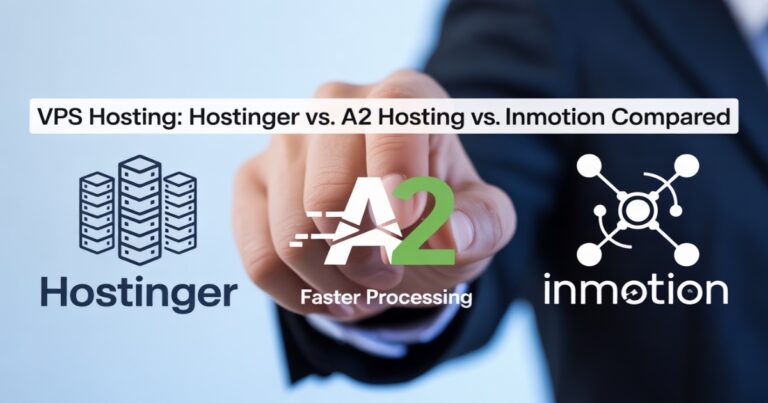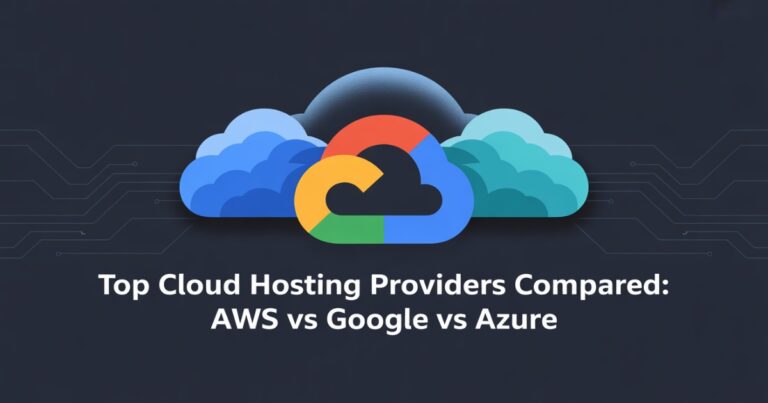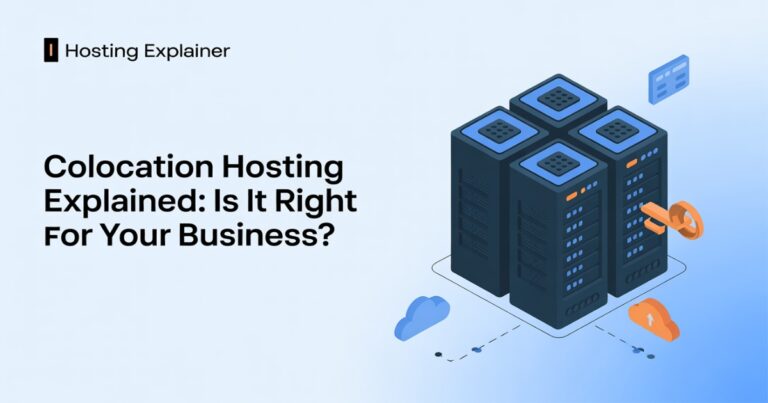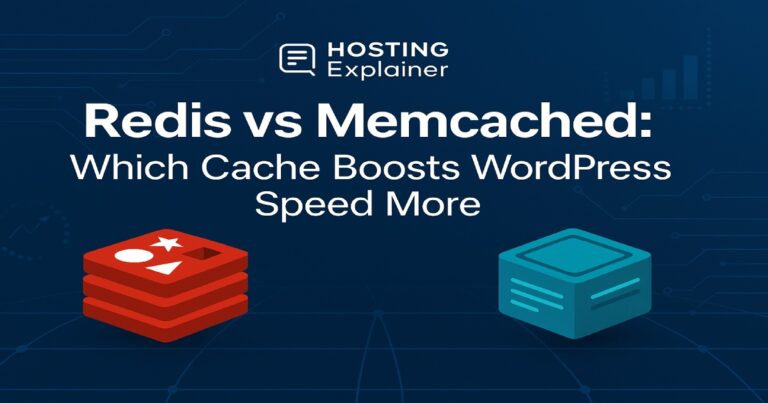Managed WordPress Hosting vs Regular Hosting: The Key Differences
When I first set up a WordPress site, hosting was the most confusing part. I kept hearing terms like “managed hosting” and “shared hosting,” and I had no clue what they meant. If you’ve been in the same spot, you’re not alone.
In this guide, I’ll explain managed WordPress hosting vs regular hosting in simple terms. You’ll learn what they are, how they differ, and which option might be the right fit for your website. I’ll also share some personal takeaways from working with both, so you can make an informed choice.
What Is Managed WordPress Hosting?
Managed WordPress hosting is a service where the host takes care of the technical work for you. Think of it like hiring a house manager; you focus on living, and they handle repairs.
With managed hosting, you usually get:
- Automatic updates for WordPress core, plugins, and themes.
- Daily backups and one-click restore options.
- Built-in caching and CDN for faster speed.
- Strong security like firewalls and malware scans.
- Staging environments to test changes safely.
- Expert WordPress support.
When I moved one of my busy blogs to a managed plan, I noticed a big drop in downtime. I could finally stop worrying about updates breaking my site or plugins clashing.
What Is Regular Hosting for WordPress?
Regular hosting, often called shared hosting, is the basic option most people start with. Your site shares server space with many others. This makes it affordable but also less optimized for WordPress.
Here’s what you usually get:
- Lower monthly cost, often under $10.
- Manual updates and backups.
- General support, not always WordPress-focused.
- Limited performance tools or optimizations.
I used regular hosting for my first personal site. It worked fine at the start, but as traffic grew, I noticed slower load times and more maintenance headaches.

Key Differences Between Managed WordPress Hosting and Regular Hosting
Now that we’ve defined both, let’s look at the main differences side by side.
| Features | Managed WordPress Hosting | Regular Hosting |
| Speed | Optimized servers, caching, CDN | Basic setup, slower with traffic |
| Security | Malware scans, firewalls, daily backups | DIY updates, limited support |
| Ease of Use | Automatic updates, staging tools & support | Basic protection, manual backups |
| Pricing | Higher, but less work for you | Lower, but more manual effort |
Performance and Speed
Managed hosting is built for WordPress. It comes with caching, CDN, and tuned servers. This means your pages load faster, even when traffic spikes. Site speed matters for SEO, and for users, slow pages drive people away.
Regular hosting uses generic servers. Your site performance often depends on what other sites on the server are doing. If one gets a sudden surge of traffic, your site might lag too.
When I switched one of my eCommerce sites to managed hosting, checkout times went down, and the bounce rate dropped. That single change improved conversions.
Security and Backups
With managed hosting, you don’t need to worry about hacking or data loss. Most plans include:
- Daily automated backups.
- Malware scanning and removal.
- DDoS protection and firewalls.
On regular hosting, you’re responsible for setting up plugins, buying backup services, or manually downloading files. It works, but it’s easy to forget until it’s too late.
I once lost a week’s worth of blog content because I hadn’t set up backups on a shared host. After that, I started paying extra for better security; lesson learned.
Support and Ease of Use
Support is where I noticed the biggest difference. With managed hosting, the support team specializes in WordPress. They’ll help fix plugin conflicts, optimize performance, or guide you through updates.
With regular hosting, support usually covers server issues only. If your site breaks after a theme update, they’ll likely tell you it’s your problem.
For beginners, this support gap can be frustrating. I once spent hours Googling fixes that a managed host later solved in five minutes.
Pricing and Value
Managed hosting costs more, usually between $20 and $40 per month. Some providers go higher if you need advanced features or heavy traffic capacity. But you save time, stress, and sometimes money on security and caching plugins.
Regular hosting is cheaper, starting as low as $3 per month. This makes it attractive for new bloggers or small personal sites. The trade-off is the extra work you’ll need to put in.
If you value your time or run a site that earns money, the higher cost of managed hosting often pays for itself.
Who Should Choose Managed WordPress Hosting?
Managed hosting is best if you:
- Run a business or eCommerce site.
- Manage high-traffic blogs or media sites.
- Don’t want to deal with technical tasks.
- Need guaranteed uptime and support.
When I moved a client’s online store to managed hosting, their sales process improved instantly. Pages loaded faster, checkout errors dropped, and they could focus on growth instead of tech problems.
Who Should Stick With Regular Hosting?
Regular hosting is still a smart choice in some cases. It’s best if you:
- Run a personal blog, portfolio, or hobby site.
- Have low traffic and a limited budget.
- Want to learn WordPress by managing things yourself.
I often recommend beginners start with shared hosting. It’s a low-cost way to experiment and learn. You can always upgrade later when the site outgrows the basic plan.
Common Myths About Managed vs. Regular Hosting
- “Managed hosting is only for big websites.” Not true. Even small business owners benefit from saved time and security.
- “Regular hosting is enough for everyone.” It depends. A personal blog may be fine, but a growing store will need more.
- “Managed hosting guarantees rankings.” Hosting helps speed and uptime, but SEO success still depends on content, links, and strategy.
FAQs About Managed WordPress Hosting vs. Regular Hosting
- Does managed WordPress hosting improve SEO?
Indirectly, yes. Faster load times and better uptime help with rankings, but strong content is still essential.
2. Is managed WordPress hosting better than regular hosting for beginners?
If you want peace of mind, yes. But regular hosting is fine if you’re learning or running a small site.
3. Do I need managed hosting if I use plugins for security?
Not always, but managed hosting includes server-level security that plugins alone can’t match.
4. When should I upgrade from regular to managed hosting?
Upgrade when traffic grows, maintenance feels overwhelming, or your site becomes business-critical.
5. What is the difference between shared hosting and managed WordPress hosting?
Shared hosting is cheap and basic. Managed hosting is WordPress-focused with better speed, security, and support.
Which Hosting Should You Choose?
Both hosting types work, but the right choice depends on your needs.
- Choose managed WordPress hosting if you value speed, security, and expert support. It’s worth it for businesses, busy blogs, and anyone who can’t afford downtime.
- Choose regular hosting if you’re on a budget, just learning, or running a small personal site. It’s a good starting point, and you can upgrade later.
I’ve used both, and my rule is simple: start small if you’re testing ideas, but don’t be afraid to move to managed hosting when your site becomes important. That move can save you time, stress, and lost opportunities.






